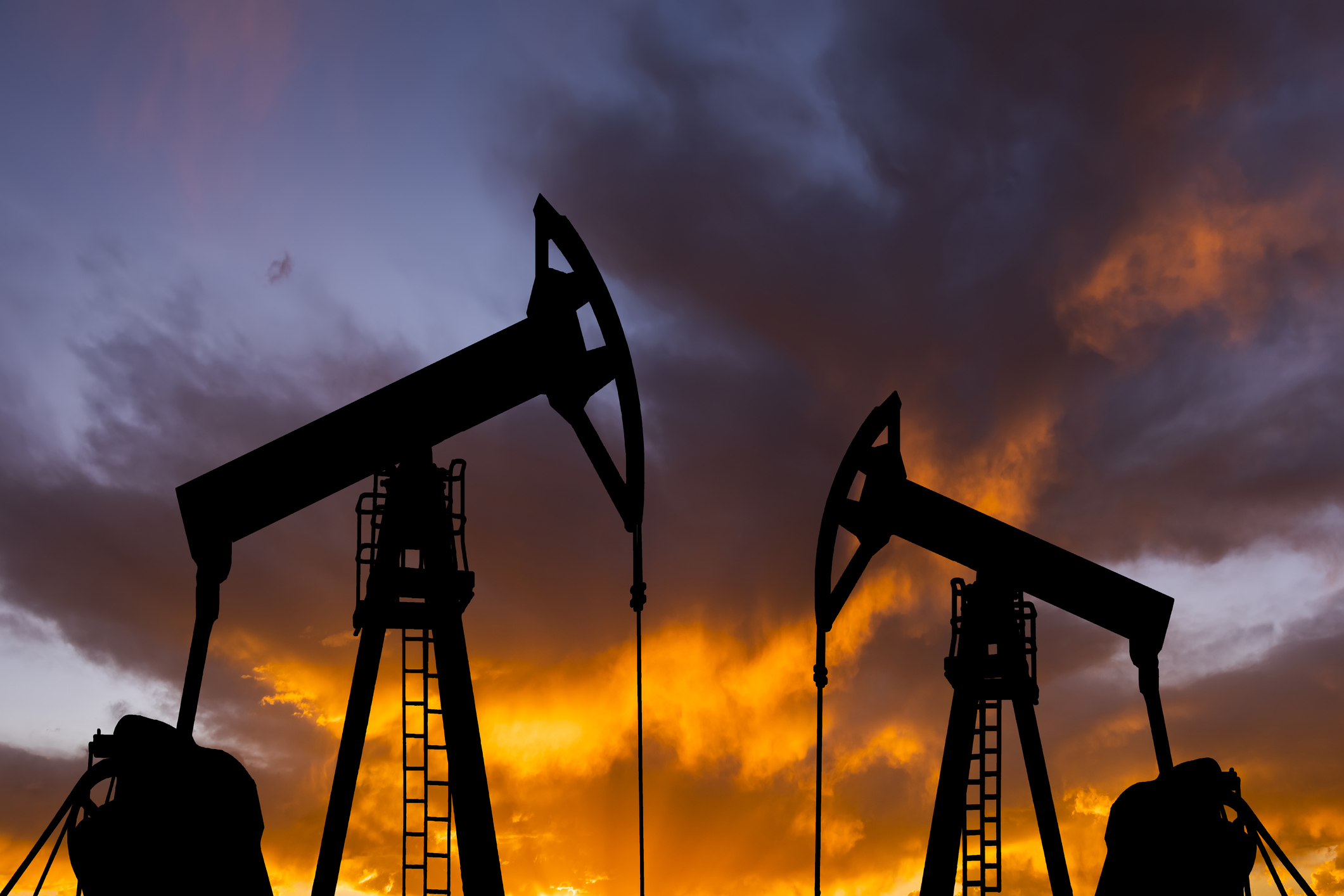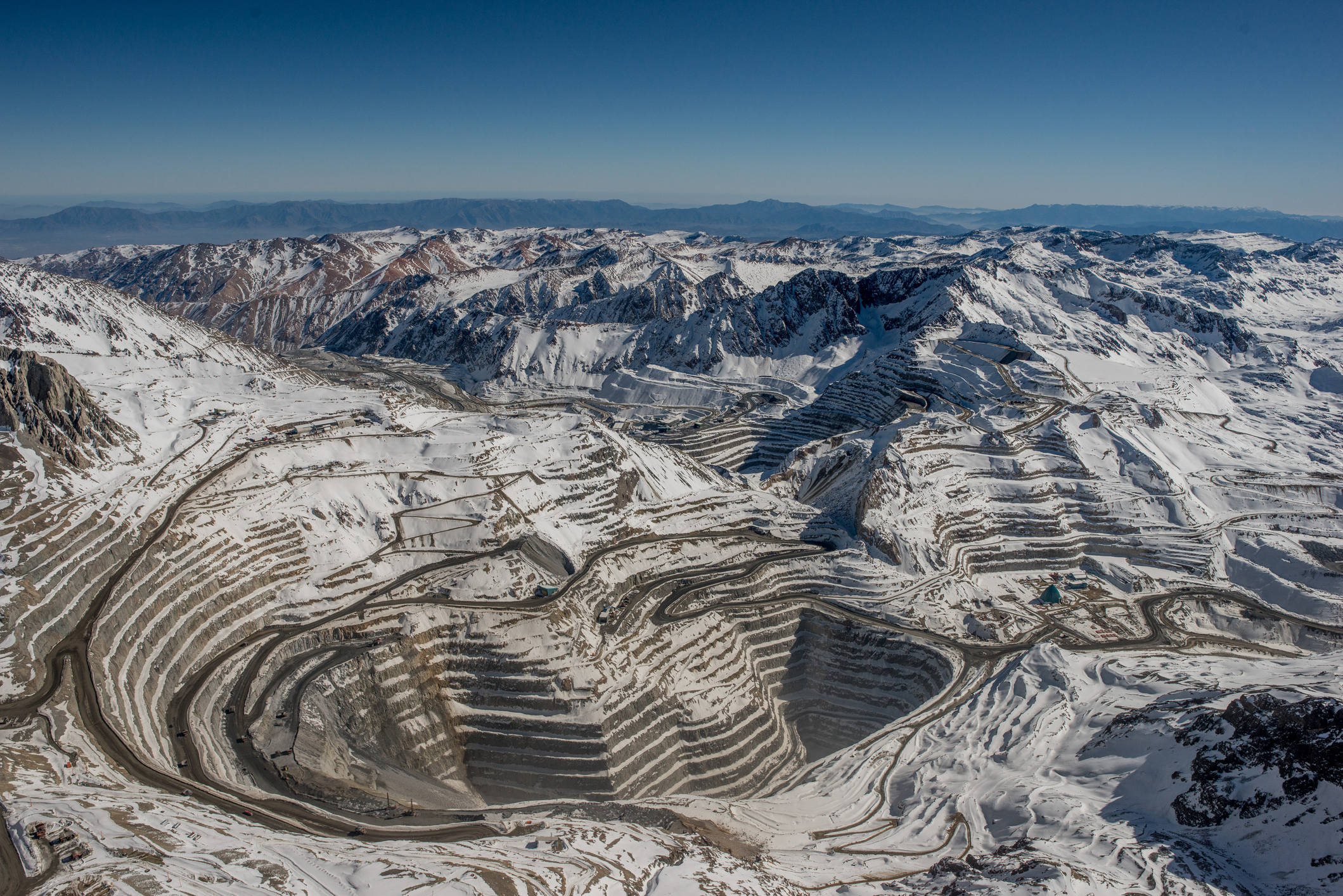Oil price keeps rising despite Opec+ production rise
The price of oil reached $120 a barrel this week, despite Opec+ saying it would raise production by 648,000 barrels a day.

Get the latest financial news, insights and expert analysis from our award-winning MoneyWeek team, to help you understand what really matters when it comes to your finances.
You are now subscribed
Your newsletter sign-up was successful
Want to add more newsletters?

Twice daily
MoneyWeek
Get the latest financial news, insights and expert analysis from our award-winning MoneyWeek team, to help you understand what really matters when it comes to your finances.

Four times a week
Look After My Bills
Sign up to our free money-saving newsletter, filled with the latest news and expert advice to help you find the best tips and deals for managing your bills. Start saving today!
There’s a hurricane “right out there down the road coming our way”, JPMorgan Chase’s chief executive Jamie Dimon told a conference last week. “We just don’t know if it’s a minor one or Superstorm Sandy [which caused $65bn of damage in the US in 2012]… you better brace yourself.” Russia’s invasion of Ukraine means oil is likely to get much pricier, he said. Crude could hit $150-$175 per barrel.
Brent crude reached $120 a barrel this week, having risen more than 50% since the start of the year. The price spike came despite an announcement last week by producer group Opec+ that it would raise output by 648,000 barrels a day (bpd) in July and August, higher than the originally planned 432,000 bpd. The world consumes 100 million bpd of oil.
The decision shows that cartel lynchpin Saudi Arabia is finally responding to US pressure to increase production, say Derek Brower and David Sheppard in the Financial Times. The deal marks the end of a “two-year quota system that has helped oil prices rise almost 500% since the nadir of the pandemic crash”.
MoneyWeek
Subscribe to MoneyWeek today and get your first six magazine issues absolutely FREE

Sign up to Money Morning
Don't miss the latest investment and personal finances news, market analysis, plus money-saving tips with our free twice-daily newsletter
Don't miss the latest investment and personal finances news, market analysis, plus money-saving tips with our free twice-daily newsletter
Yet the modest Opec+ increase is dwarfed by losses from sanctioned Russian crude, which could total three million bpd by the end of the year, according to the International Energy Agency. And pledges by Opec+ to raise output are all the less compelling because many members are struggling to fill existing quotas. The real increase will be much lower, at about 160,000 bpd in July and 170,000 bpd in August, reckon JPMorgan analysts.
Redrawing the map
Opec+ members together control 55% of global oil production, but the key players are Saudi Arabia and Russia, which together account for more than 20% of global output, say David Rundell and Michael Gfoeller in Barron’s. The pair’s strategic alliance is mutually beneficial, with both enjoying a significant windfall from high oil prices. That explains why Washington has had such a difficult time cajoling Riyadh into raising output.
“Russia’s attack on Ukraine is redrawing the world’s energy map,” say Christopher Matthews, Summer Said and Benoit Faucon in The Wall Street Journal. Energy markets are heading for a “more Balkanised” future, divided into a US-led bloc that won’t buy Russian fuel, an axis of emerging markets experimenting with alternatives to the dollar-denominated energy trade, and Middle East producers that stand to gain by selling to everyone.
But while Moscow is enjoying a windfall now, in the long term it will be forced to grant favourable terms to the few countries still willing to buy its energy, while Western technology sanctions will gradually degrade its ability to pump hydrocarbons, says Daniel Yergin of S&P Global. “Russia’s days as an energy superpower are over.”
SEE ALSO:
Britain’s broken energy markets
Which companies will lose the most from the energy windfall tax?
Why food and fuel subsidies will push up debt
Get the latest financial news, insights and expert analysis from our award-winning MoneyWeek team, to help you understand what really matters when it comes to your finances.
Alex is an investment writer who has been contributing to MoneyWeek since 2015. He has been the magazine’s markets editor since 2019.
Alex has a passion for demystifying the often arcane world of finance for a general readership. While financial media tends to focus compulsively on the latest trend, the best opportunities can lie forgotten elsewhere.
He is especially interested in European equities – where his fluent French helps him to cover the continent’s largest bourse – and emerging markets, where his experience living in Beijing, and conversational Chinese, prove useful.
Hailing from Leeds, he studied Philosophy, Politics and Economics at the University of Oxford. He also holds a Master of Public Health from the University of Manchester.
-
 Early signs of the AI apocalypse?
Early signs of the AI apocalypse?Uncertainty is rife as investors question what the impact of AI will be.
-
 Reach for the stars to boost Britain's space industry
Reach for the stars to boost Britain's space industryopinion We can’t afford to neglect Britain's space industry. Unfortunately, the government is taking completely the wrong approach, says Matthew Lynn
-
 Is the market missing the opportunity in energy?
Is the market missing the opportunity in energy? -
 Halifax: House price slump continues as prices slide for the sixth consecutive month
Halifax: House price slump continues as prices slide for the sixth consecutive monthUK house prices fell again in September as buyers returned, but the slowdown was not as fast as anticipated, latest Halifax data shows. Where are house prices falling the most?
-
 Rents hit a record high - but is the opportunity for buy-to-let investors still strong?
Rents hit a record high - but is the opportunity for buy-to-let investors still strong?UK rent prices have hit a record high with the average hitting over £1,200 a month says Rightmove. Are there still opportunities in buy-to-let?
-
 Pension savers turn to gold investments
Pension savers turn to gold investmentsInvestors are racing to buy gold to protect their pensions from a stock market correction and high inflation, experts say
-
 6 stocks to buy to invest in Latin America
6 stocks to buy to invest in Latin AmericaThe region is the world’s one-stop shop, boasting the raw materials required for the energy transition and key foodstuffs to cater for growing populations, says James McKeigue. Here’s how to profit.
-
 Where to find the best returns from student accommodation
Where to find the best returns from student accommodationStudent accommodation can be a lucrative investment if you know where to look.
-
 The world’s best bargain stocks
The world’s best bargain stocksSearching for bargain stocks with Alec Cutler of the Orbis Global Balanced Fund, who tells Andrew Van Sickle which sectors are being overlooked.
-
 Revealed: the cheapest cities to own a home in Britain
Revealed: the cheapest cities to own a home in BritainNew research reveals the cheapest cities to own a home, taking account of mortgage payments, utility bills and council tax